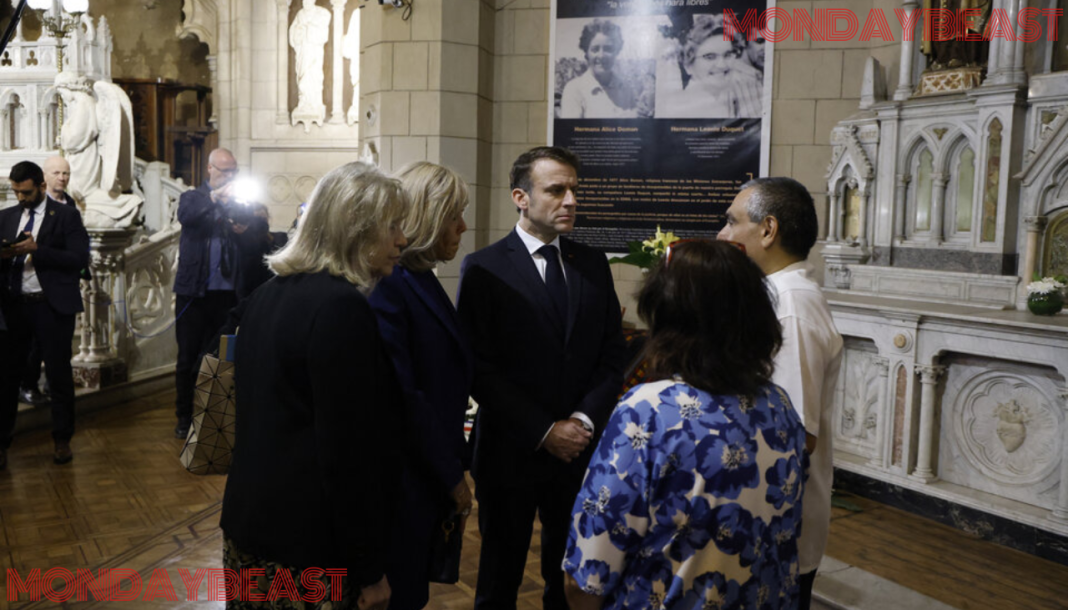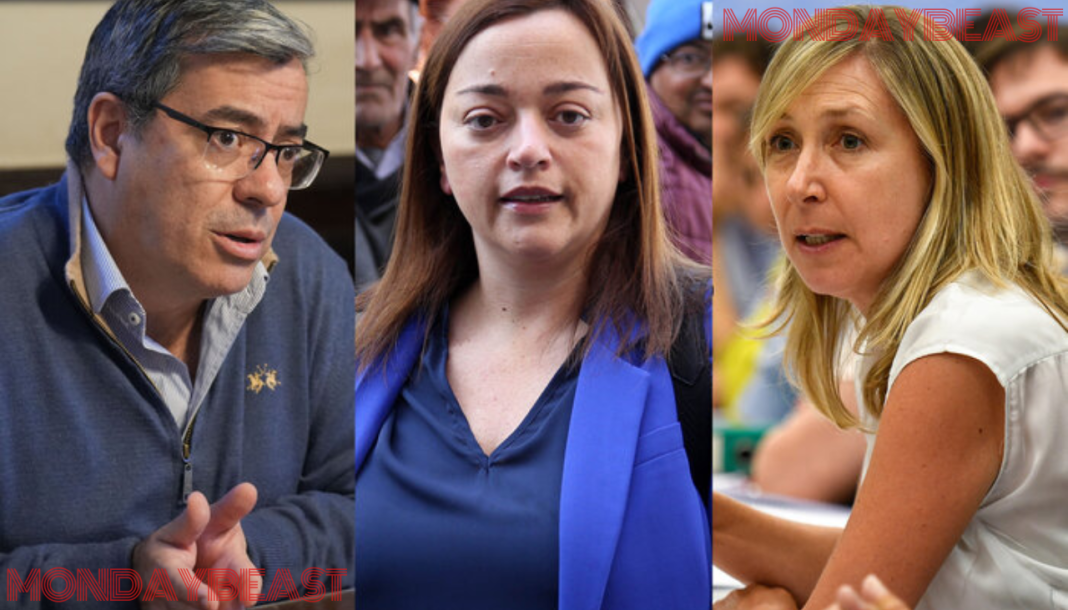The weight of history rests heavily in Argentina. When President Emmanuel Macron visited the Iglesia Santa Cruz, emotions ran high. His presence brought a renewed focus on the ongoing struggles for memory, truth, and justice.
What does it mean when a world leader pays homage? For many, it symbolizes acknowledgment, a simple yet profound gesture. Macron honored the memory of Leonie Duquet and Alice Domon, two French nuns who were brutally taken during Argentina’s dark years of dictatorship.
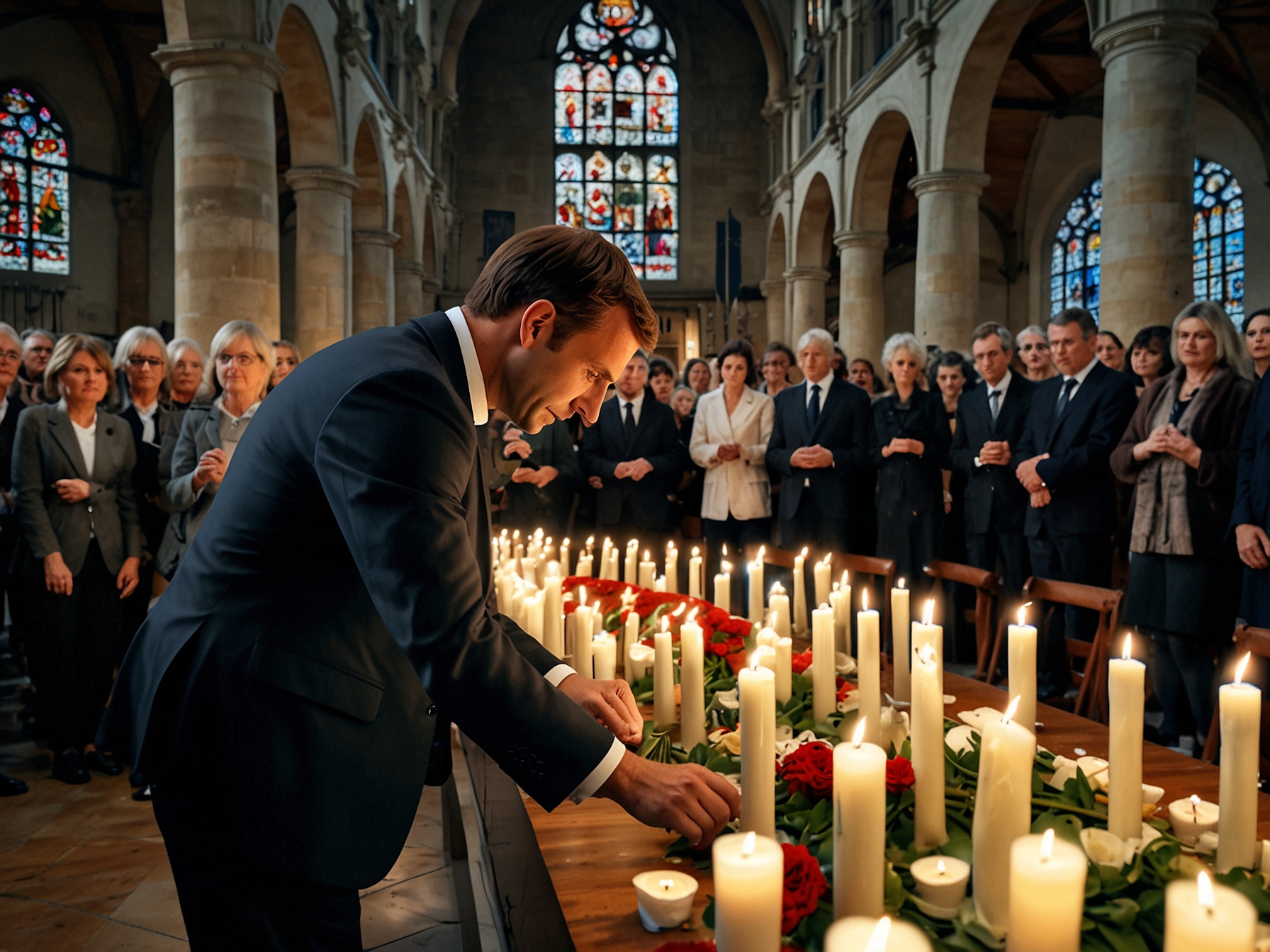
Their stories are not just footnotes in history; they resonate deeply with families still mourning. As Macron laid flowers, he spoke with survivors and relatives. They shared their fears about Javier Milei’s administration, which some say undermines human rights efforts.
Some may wonder: can one visit change the narrative? Can it prompt governments to reconsider their approach to memory and justice? Conferencing with representatives from organizations like the Abuelas de Plaza de Mayo, Macron listened intently. His commitment seemed promising.
The echoes of the past filled the church, a sacred space for many. It served as a reminder of the lives lost, yet also a beacon of hope for the future. The retelling of such painful experiences binds communities.
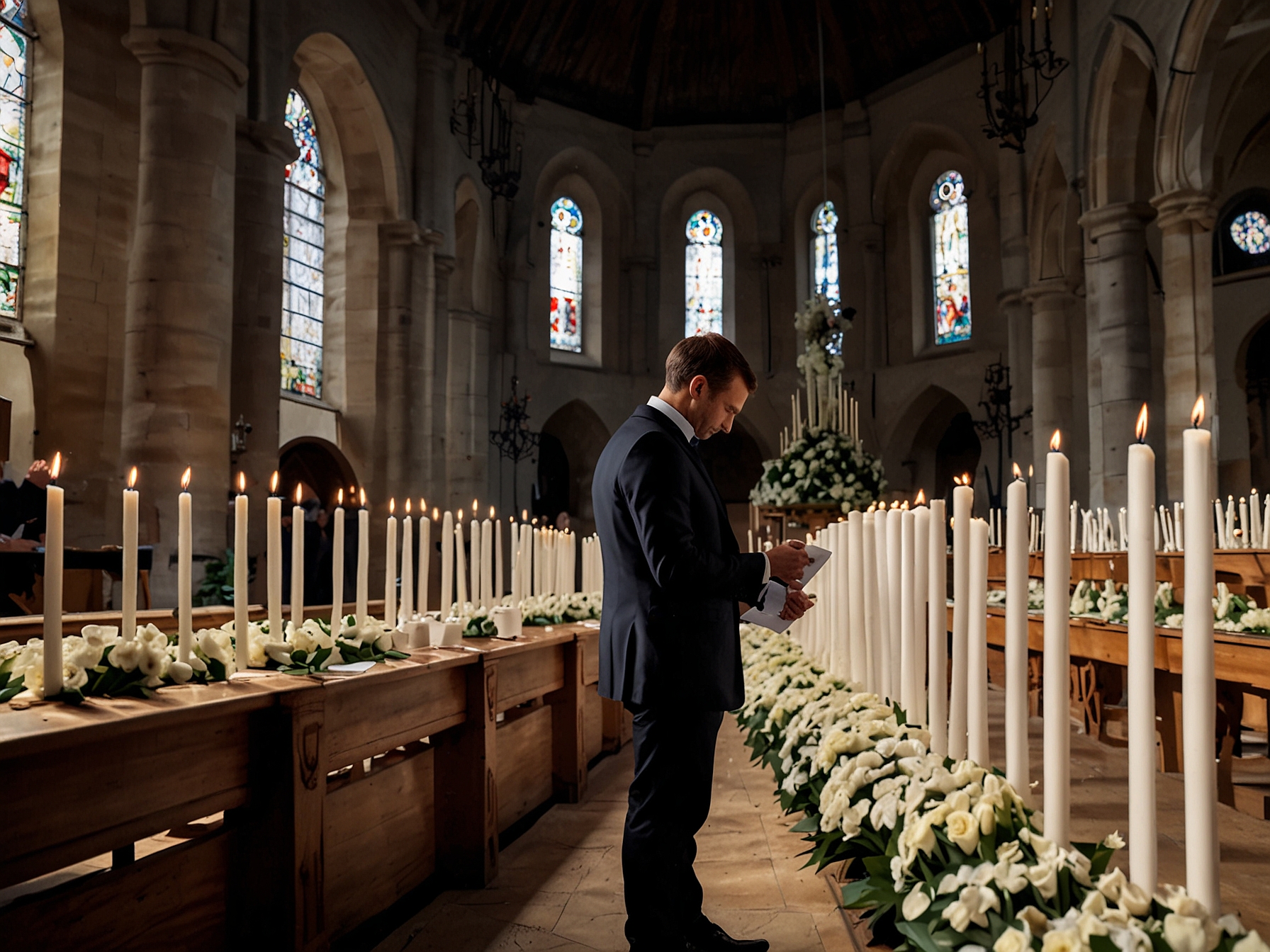
The gathering was not just an event but a movement. Ana Careaga’s voice rang clear as she addressed Macron. She spoke about threats to workers in human rights and the ongoing mistreatment faced by organizations. These challenges reflect a broader struggle in Argentina.
The unexpected meeting revealed much. Macron was not merely a visitor; he became a vessel for their collective voices. Would that open a dialogue with Milei? Later, he was set to meet with the Argentine president, a crucial moment where heavy concerns awaited discussion and clarity.
Yet, beyond politics, what about the human stories intertwined in these events? Eric Domergue stands as a reminder. His brother was a victim of state terrorism, and his commitment to justice was palpable.
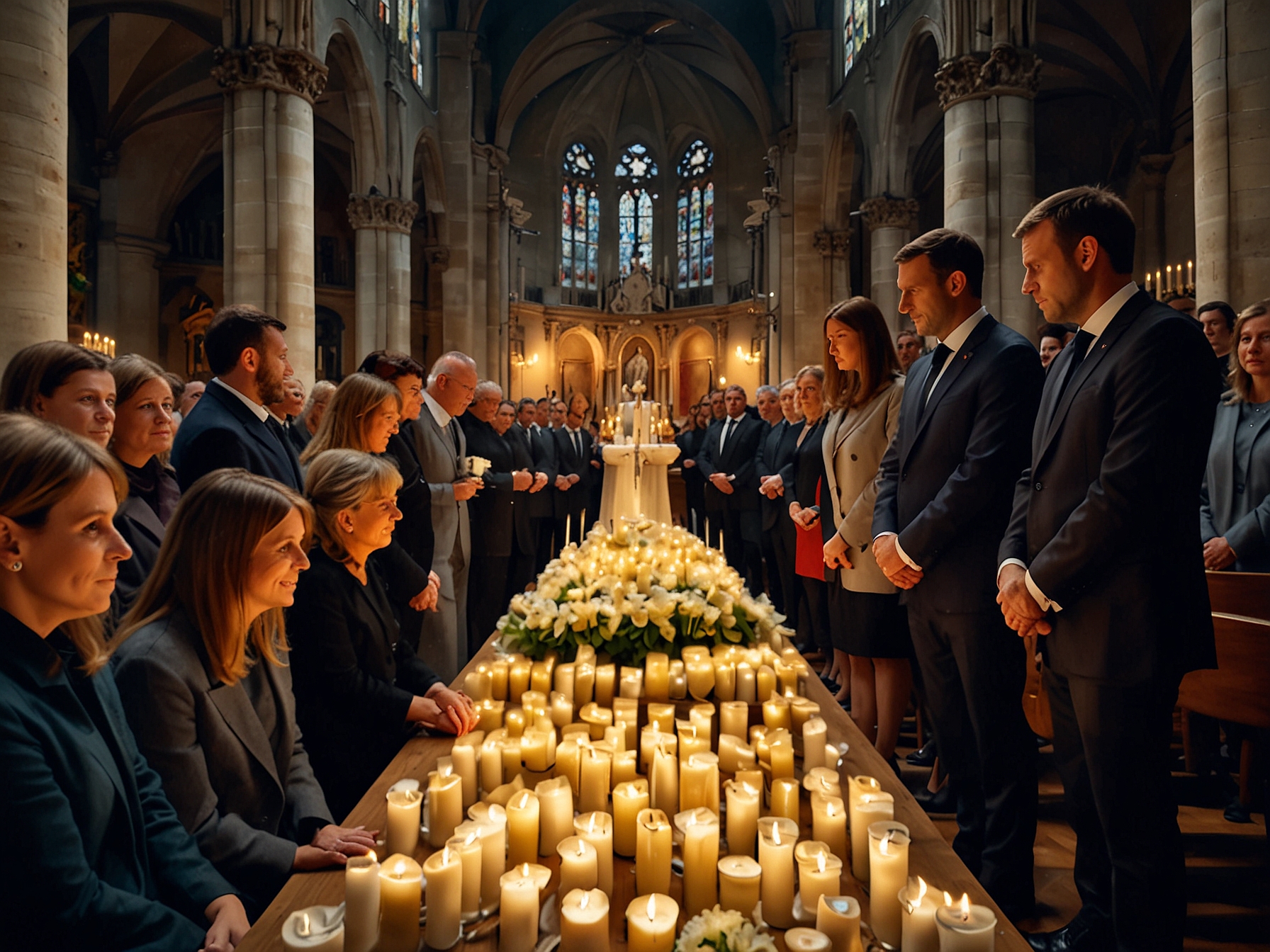
He handed Macron a letter detailing the regression in human rights since Milei’s administration began. Each word echoed the hope and fear felt by families seeking acknowledgment. Could this be more than just a formality?
The artistic connection made by Adolfo Pérez Esquivel painted another layer to the visit. His transcendence as a leader in the rights movement brought valuable perspective. The symbolism of peace through remembrance resonated deeply. Will this prompt other leaders to take similar stances?
A poignant conversation unfolded about the collective memory facing dissent in contemporary Argentina. Characters like Alfredo Astiz loomed large, representing a past many want to forget. It’s puzzling; why would society wish to erase such a critical part?
As many gathered to depart after Macron’s visit, they reflected on hope—a slim but empowering thread guiding their journey. Their fight isn’t just about the past but forging the future. And hope looks different for everyone. Will today’s youth engage in this struggle?
As the evening set in, mass unraveled inside the Iglesia Santa Cruz, filling the space with whispers of faith and resilience. This holy site, once grounded in tragedy, transformed into a gathering space filled with purpose and memory.
The dialogue initiated during Macron’s visit cultivates a vital conversation. A reminder that storytelling isn’t exclusively about politics; it’s also about connection. Through shared narratives, participants can forge a future beyond negationism.
It’s essential—how can history shape our present? As families await the outcome of their conversations with power, the world watches. Hope intervenes in unexpected ways, aligning echoes of memory with calls for foundational justice.

